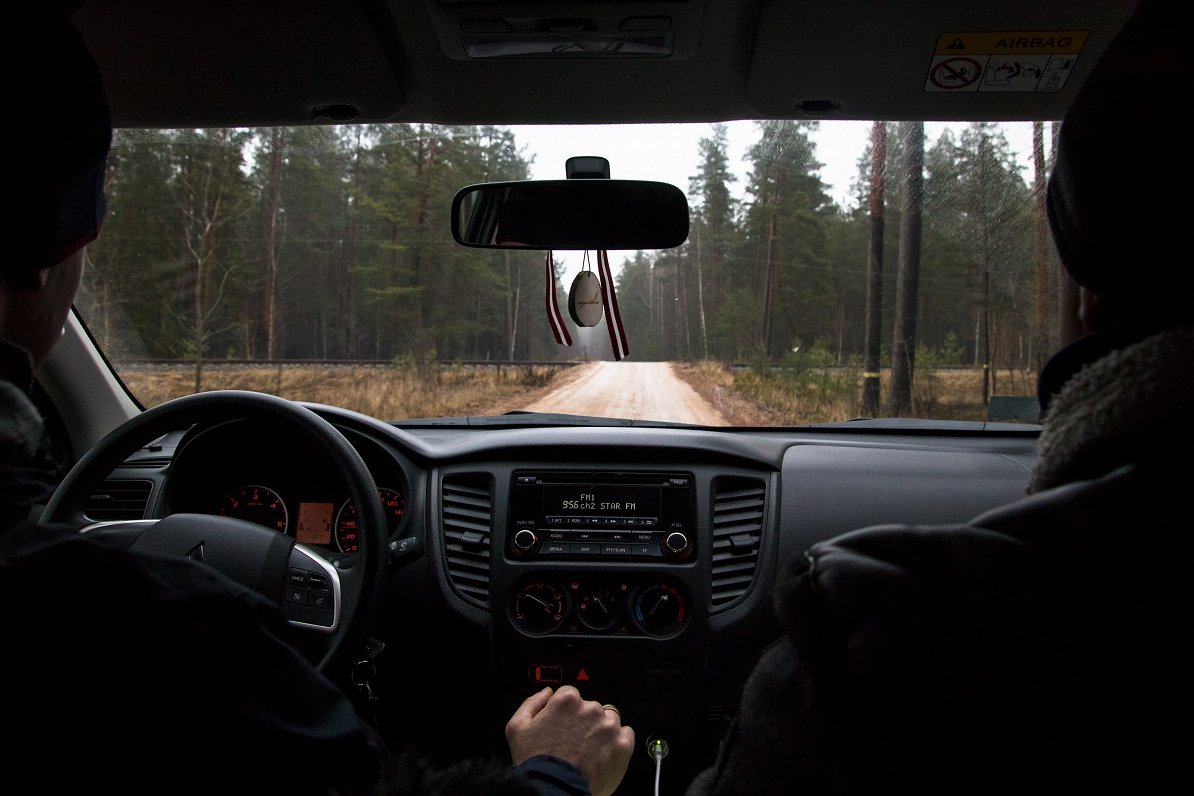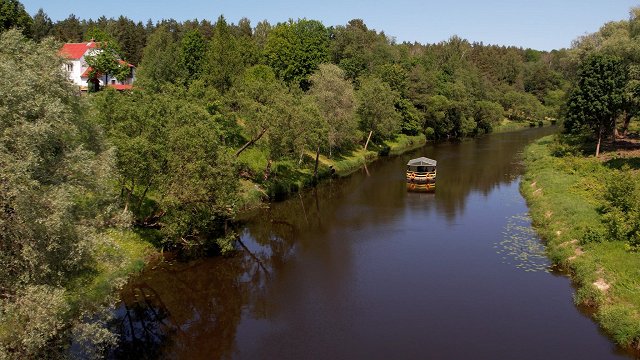“I would like to not have to specially drive and register the trash. It's our work time, work hours, it's not a good use of our work time, but we can't do without it,” said LVM South Latgale region foresters.
Outside of the city of Daugavpils lies a beautiful pine tree forest. After turning off onto a dirt road, the foresters encounter five locations with bags of trash that include clothing, toys and shoes. Evidence shows that it's all the property of a used clothing store that couldn't sell all of their inventory. Criminal proceedings have been initiated, as the clothes still had the store's price tags. There was a case where Daugavpils police caught a person illegally dumping trash in the city, but when they were forced to clean it up, they dumped it in the forest.
Not far from the clothes, the foresters also found bags of construction waste. Other commonly found trash includes household waste, car tires and furniture, though instances of furniture being found have decreased. Cameras have also been installed to help fight the illegal dumpers, but they can't cover the whole forest.
“What we currently don't practice and wouldn't want to is closing the roads with barriers. Most likely trash wouldn't get dumped by a big highway,” said LVM forester Kristaps Plonis.
There is also an issue with biological waste such as garden flowers, piles of raked leaves. Although this type of biological waste disintegrates, it shouldn't get dumped in the forest because it can change the soil. Also, compost piles in the forest are rather unsightly.
“An average in state forests we collect around 1500 cubic meters, last year we collected around 2000,” said forester LVM Aldonis Utināns.
When the culprit can't be found either the forest owners or LVM get stuck with the cleanup. For LVM that means money they aren't using to upgrade rest areas, create new paths or renovate watchtowers. In the South Latgale region this meant spending around 25 000 euros to collect 760 cubic meters of waste.
Even many people who have waste disposal contracts still dump trash in the forest to save money. Additional recycling points could alleviate the problem, but with the law currently defining the amount necessary by population, Daugavpils, for example, is only required to have one point.
The Ministry of Environmental Protection and Regional Development (VARAM) is currently in the process of amending regulations so that each resident could take used tires to landfills once a year for free. However they're still working with the Ministry of Economics on a solution for construction waste, but it will definitely include additional oversight.
“For those who end up with it as a result of apartment renovations or home cosmetic renovations, the municipality must create a system. And there are municipalities where this occurs optimally,” said VARAM Deputy State Secretary Alda Ozola.
As previously reported, the mobile app Environmental SOS has received twice as many alerts this year about possible environmental violations as in previous years.
Environment SOS was created four years ago to promote citizen involvement in dealing with environmental issues. In the first three years activity remained around one and a half to two thousand alerts per year. This year there was a substantially greater number of alerts - four thousand alerts about environmental violations have already been received this year, according to State Environmental Service Monitoring Department Senior Inspector Ruta Poikāne.






























